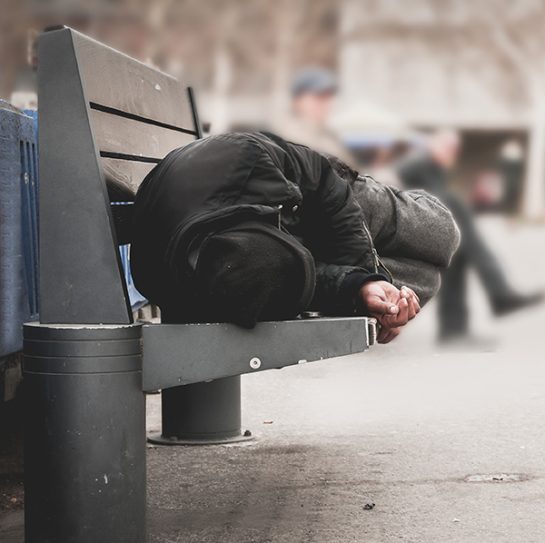Amidst those afflicted by the pandemic, health disparities become more apparent than ever before. At risk groups, such as the homeless, are struggling to follow preventive COVID-19 measures while not having the basic social determinants of health met. Assistance groups must shift focus to whole person care to better help at risk individuals during the pandemic.
With the death toll of COVID-19 rising by the day, following preventive measures against the virus is of paramount importance. The steps for preventing the spread of the virus seem to be on loop through the media and even basic conversation: wash your hands, stay at home, sanitize all your surfaces, practice social distancing, wear a mask in public, etcetera, etcetera. However, the connection between those that are dying during the pandemic and their access to the resources required to follow basic preventive measures is often overlooked. To best prevent the spread of COVID-19, healthcare and social service providers must shift focus to whole person care and the social determinants of health.
Social Determinants of Health and COVID-19
The social determinants of health (SDoH) are defined as “the conditions in which people are born, grow, work, live, and age, and the wider set of forces and systems shaping the conditions of daily life.” Many of the SDoH factor into basic living conditions and subsequently affect one’s ability to take preventive measures during the COVID-19 pandemic. According to the most recent federal data, during 2018 roughly half a million individuals became homeless on any given night. Individuals living in the obvious health disparity typically do not have all SDoH fulfilled. In the aforementioned cases of homelessness, where the affected face housing/shelter instability, adhering to social distancing and quarantining protocols, or maintaining suggested hygiene and sanitation standards becomes near impossible.
Additional concerns stem from those facing SDoH instability being able to access community resources during the pandemic. Amidst the need for social distancing, causing further SDoH instability amongst households in need would prove counterproductive as it may further the disparity. Annelies Groger, a David M. Rubenstein Fellow at the Brookings Institute, relates this concern in recent blog post to low-income senior citizens, “Although social distancing is necessary to help limit the spread of the virus, anything that deters people from accessing group meals at senior centers or food banks puts low-income seniors in danger of malnutrition and hunger…Millions of them also typically cannot afford to stock up on food or supplies, and if they can, many need transportation assistance to and from grocery stores.”
Solutions amidst the Pandemic
While the wealth and health disparities become glaringly evident amidst the effects of COVID-19, many communities and organizations are working to support vulnerable groups.
- Molina Healthcare provides a $75,000 grant to support South Carolinian social services targeting key social determinants of health such as homelessness, food insecurity, and job insecurity.
- PwC Charitable Foundation, a PricewaterhouseCoopers group, revealed a $2.85 million grant to support community health via food access, community outreach and education, and access to personal protective equipment for medical professionals.
- Homeless shelters across the country adjust shelter standards to adhere to CDC guidelines. Efforts include spacing sleeping provisions at least three feet apart, providing easy access to soap and other sanitation supplies, administering COVID-19 screening tests, and quarantining any individuals exhibiting symptoms of the virus.
Unfortunately the disparities experienced by those struggling with SDoH instability cannot be solved in an instant, but focusing on resolving SDoH of afflicted groups can aid in preventing the spread of COVID-19. Community organizations and healthcare/social service providers must focus on working together to assist disparaged groups during the pandemic. Data sharing platforms like ClientTrack, can facilitate the process of identifying needs, directing resources, coordinating care, and realizing successful initiatives to address SDoH amidst multiple groups.
To learn more about ClientTrack services and tools to assist during COVID-19, click here.
Resources:
https://patientengagementhit.com/news/how-the-coronavirus-affects-social-determinants-of-health
https://pubmed.ncbi.nlm.nih.gov/27015249/
https://patientengagementhit.com/news/community-health-grant-supports-food-access-education-ppe
https://patientengagementhit.com/news/health-orgs-target-social-determinants-of-health-from-covid-19
https://www.latimes.com/opinion/story/2020-04-08/coronavirus-racial-disparity



